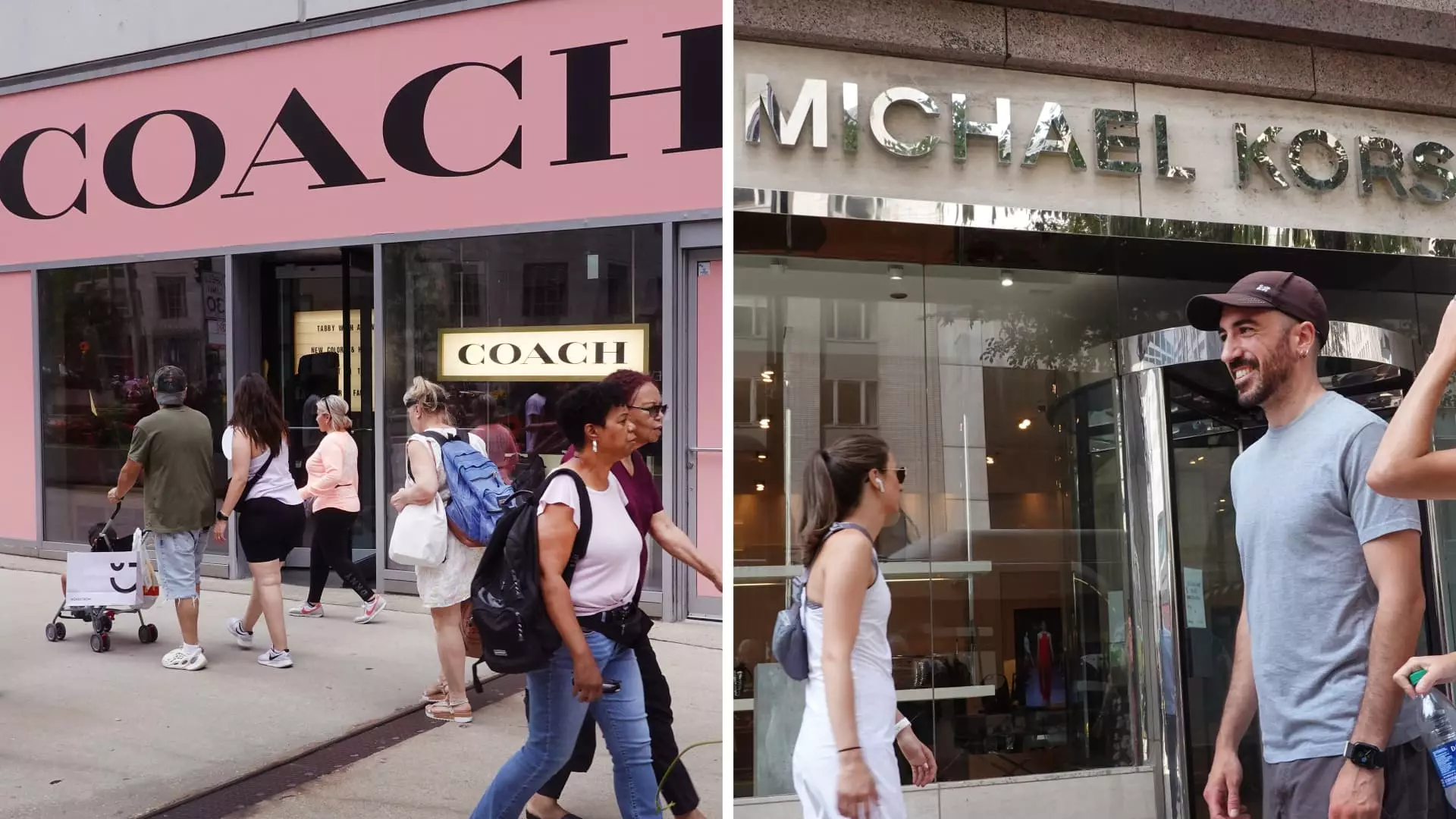The U.S. Federal Trade Commission recently took a stand against the $8.5 billion acquisition of Capri Holdings by Coach and Kate Spade’s parent company, Tapestry. This move by regulators has temporarily halted a deal that would merge two major names in American luxury retail and consolidate six fashion brands under one company. The acquisition would bring together renowned brands such as Tapestry’s Coach, Kate Spade, and Stuart Weitzman with Capri’s Versace, Jimmy Choo, and Michael Kors.
According to a news release from the FTC, the combined company resulting from this acquisition could potentially harm both consumers and employees. The FTC stated that Tapestry and Capri currently compete across various product categories, including clothing, eyewear, and shoes. The Director of the FTC’s Bureau of Competition, Henry Liu, expressed concerns about Tapestry’s intentions to further strengthen its position in the fashion industry through serial acquisitions. Liu emphasized that this deal could limit consumer choice for affordable handbags and potentially impact the wages and working conditions of hourly employees.
In response to the FTC’s lawsuit, Tapestry argued that the regulatory agency misunderstands the dynamics of the marketplace and how consumers shop. The company highlighted the evolving shopping behaviors of consumers, who increasingly shop across different brands, channels, and price points. Tapestry emphasized that it faces competitive pressures from both lower-priced and higher-priced products, and the acquisition is a strategic move to adapt to the changing landscape of the luxury industry.
Both Tapestry and Capri have stated their intention to fight for the transaction in court, with Tapestry aiming to close the deal by the end of 2024. The proposed acquisition was announced in August, with expectations of finalizing it in 2024. While regulatory approvals were obtained from Europe and Japan, the approval from U.S. officials was still pending. The merger of Tapestry and Capri would create a global luxury powerhouse with annual revenue exceeding $12 billion and operations in over 75 countries.
Tapestry, led by CEO Joanne Crevoiserat, has been focused on elevating Coach’s brand, attracting a younger customer base, and reducing dependence on discounts to drive sales. The majority of Tapestry’s sales come through its own retail channels, with limited reliance on wholesale partners. In contrast, Capri has faced challenges due to its reliance on department stores and wholesale retailers. Despite industry pressures and changing consumer preferences, both Tapestry and Capri are striving to navigate the competitive landscape and secure their positions in the luxury market.
The FTC’s lawsuit against the Capri Holdings acquisition reflects broader concerns about market competition, consumer choice, and labor practices within the luxury retail industry. The legal battle that ensues will have significant implications for the future of these iconic fashion brands and the overall landscape of luxury retail. As Tapestry and Capri continue to defend their business strategies and market positions, the outcome of this regulatory challenge will shape the trajectory of the luxury industry in the years to come.

